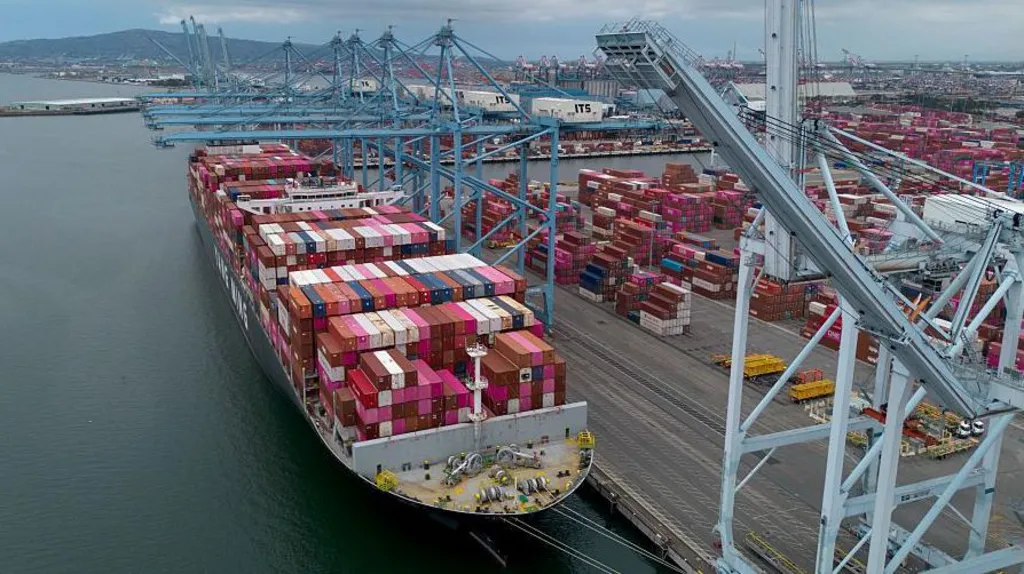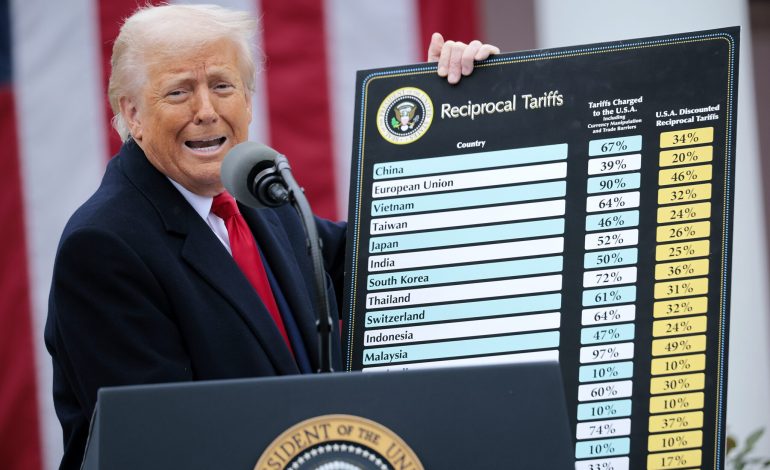Business owners across Johnson County are beginning to experience the effects of the broad tariffs introduced by President Donald Trump earlier this year, Gillette News Record reports.
Announced in April, the policy includes a 10% tariff on imports from most countries, 30% on Chinese goods, and a 50% tariff on European Union products set to begin on July 9.
The sweeping nature of these tariffs has led to rising costs for many locally owned businesses that depend on imported goods or materials. For Luke Todd, owner of The Sports Lure in Buffalo, the impact is already apparent. His store, which specializes in outdoor gear, sources a large portion of its inventory from overseas — including skis and snowboards made in Europe and apparel brands manufactured in Asia.
“Daily, I get notices from our vendors that they’re increasing prices due to the tariffs,” Todd said, noting that products like $700 skis could rise to $1,000 this winter. “Unfortunately, we’d love to carry all American-made stuff, but in our industry, 80% to 90% of the store is imported from somewhere.”
The uncertainty of pricing and availability is a common concern. Erik Burden, who owns Great Divide Services, a local HVAC business, has seen a 7% to 12% price increase in equipment since mid-May. While most of his products are manufactured in the US, the raw materials often originate from countries like China and Mexico. The cost increases, he said, are already deterring customers.
“I probably get twice as many ‘nos’ every week” for air conditioning systems, Burden said. “If I’m not able to sell, then neither are the manufacturers I work with.”
Not all businesses have seen the same impact. Jeff Shelley, owner of The Fix coffee shop, sources his coffee beans through a roaster in Cheyenne and has not yet attributed any price hikes to tariffs.
Others, like Margo Brown of Margo’s Pottery, have been directly affected. After receiving a shipment from Scotland, Brown was billed nearly $600 in tariffs on just $255 worth of goods. Despite her inventory being primarily American-made, she also sells international items. The uncertainty has led her to attempt to cancel an incoming order from Belgium, though unsuccessfully.
“I’m very worried about what the charges will be,” she said, adding that even doubling the price of tariffed items won’t allow her to break even.
The energy sector in Wyoming has so far avoided direct hits due to exemptions on oil, gas, and refined product imports. However, material costs, like for steel pipe, could still rise. According to the Petroleum Association of Wyoming, indirect effects such as global market uncertainty remain a concern.
The agricultural sector also voiced apprehension. The American Farm Bureau Federation warned that while the administration aims to rebalance global trade, the increased tariffs risk raising input costs for farmers and pushing down the value of exports.
Larger corporations may have the financial flexibility to absorb increased costs, but smaller retailers in Johnson County are facing tighter margins. For Todd, the balancing act between staying competitive and covering expenses has become more difficult.
“I hate to pass the price on, but I just don’t have any choice,” he said. “We can’t just eat it.”










The latest news in your social feeds
Subscribe to our social media platforms to stay tuned